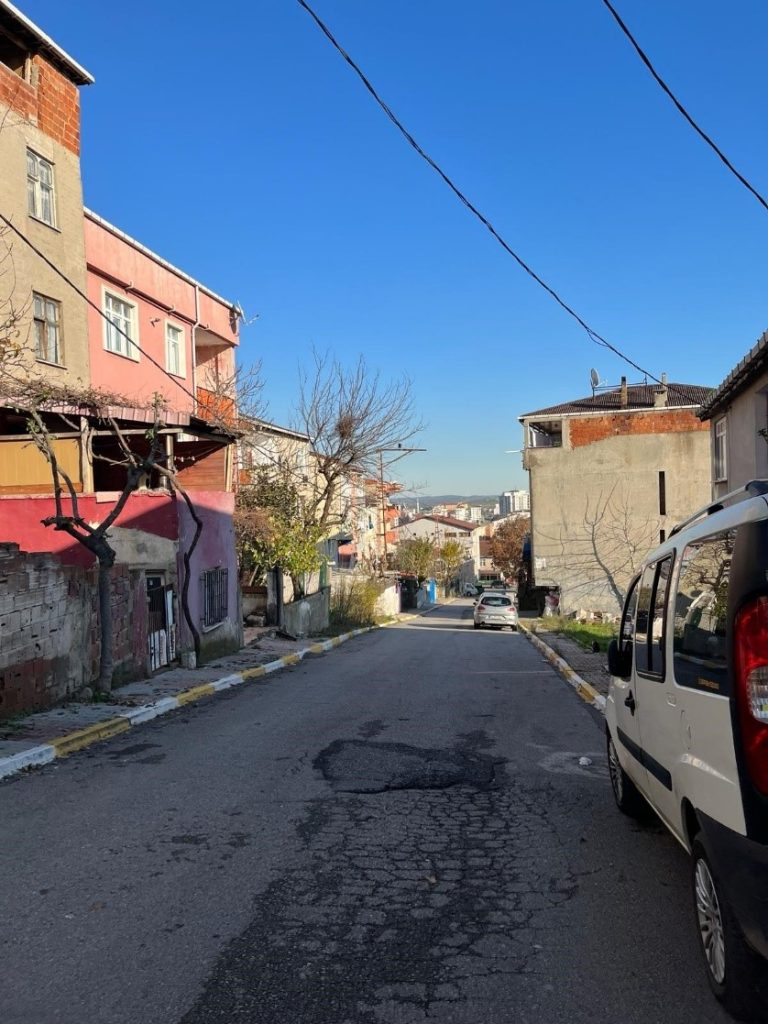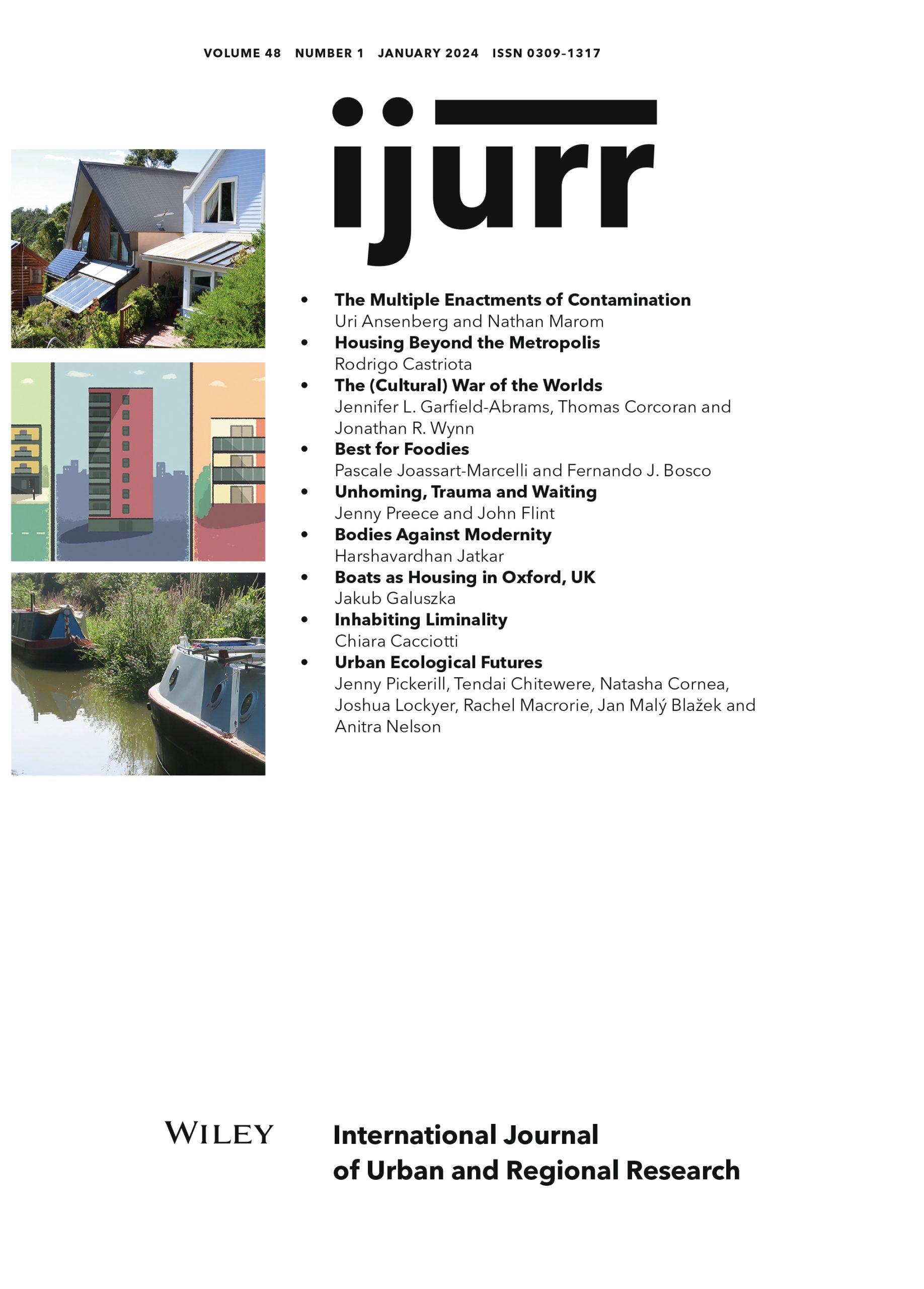I am Özge Yüksekkaya, a PhD researcher in the Political Science joint degree program between the University of Amsterdam (The Netherlands) and Koç University (Turkey). My doctoral dissertation lies at the intersection of Urban Studies and Citizenship Studies. In my research, I look at how citizens in Mexico and Turkey, specifically in Mexico City Metropolitan Area and İstanbul, have access to housing on public lands in the neoliberal era. I benefit from spatial data and methods in exploring how the size, use, and location of public lands and citizens’ access to them changed with the transition to neoliberalism. In addition to this material transformation, I also study how the discourses around citizenship are designated in the parliamentary debates of these countries vis-à-vis the ‘deservingness’ of different groups of citizens to public lands. Thus, I aim to contribute to the citizenship studies by offering nuanced accounts of spatial inequalities.
I am delighted to have been awarded the IJURR Foundation’s Studentship grant. This grant was awarded at a time when I had given up on my hopes of conducting my fieldwork in Mexico due to financial difficulties. I had reluctantly accepted that I would not be able to do fieldwork in Mexico and that there would be an imbalance across my cases. Therefore, when I received the news that I was awarded the IJURR Studentship grant, my dreams of going to Mexico were revitalized! Thanks to the studentship grant, I went to Mexico City in the summer of 2023 and stayed there for over a month. I also used this grant to conduct a second round of fieldwork in İstanbul. By using the grant in Mexico City and Istanbul in the Summer and Fall of 2023, I could gather relevant and symmetrical data about these two cases. Perhaps equally important, if not more, I could gain critical life experiences in these two fascinating cities of the Global South as a junior female researcher. In this short blog post, I would like to mention my fieldwork experiences briefly and lay out the contribution of the IJURR Studentship award to my dissertation and career.
The fieldwork in Mexico had its challenges, but it was one of the most valuable and life-changing experiences of my life. And it would not have been possible had it not been for the IJURR Studentship award. During this one month, I conducted interviews with academics and policy-makers in Mexico City about the social/public land system, housing, and data sources that I can use in the spatial analyses of my dissertation. This by itself had a tremendous impact on my career as a researcher since I was able to develop my qualitative research skills by conducting interviews in a country outside of my country of origin and a third language, i.e., Spanish. As a result, I collected invaluable data for my dissertation, which would not have been possible without the fieldwork. This provided valuable input for the analyses and background information that informed my case. I also had a lot of challenges during fieldwork, which stemmed from adjusting to life in a different and chaotic city, the pressure of finding valuable data, and navigating the time difference.
This fieldwork helped me forge an organic bond with one of my case cities, Mexico City. During this one month, I tried to immerse myself in life in Mexico City as much as possible. I stayed in an average middle-class neighborhood that wasn’t yet gentrified (Narvarte). I used Uber in a few situations where I needed to move fast and safely. Still, most of the time, I used public transportation (metro, metrobus, bus, camiones, suburban train, cablebús, etc.), thanks to which I had a chance to understand the level of crowd, chaos, traffic, and (un)safety people experience daily. While it was very enlightening, this experience was affected with my position as a foreign female researcher. Having lived in İstanbul, I was aware of the potential danger a woman can face in different settings. Adding to this my identity as a foreigner, I acted with due diligence without foregoing the experiences I can accrue from experiencing the city. However, many of these challenges and concerns were eased thanks to the support network provided by my friends, professors and by the wonderful people I met in Mexico City who sincerely offered their support and friendship, made me feel at home, trusted me enough, and provided me with connections. I could not have seen this incredible city filled with surprises if it had not been for the IJURR award. Even though it was only a month, I gained insight into the Mexican society and academia, narrowing the knowledge gap across my cases. I also was able to build connections in Mexico that would last for a long time and could potentially result in further academic cooperation in the future.

Photo 1: Iztapalapa from the cablebús, Mexico City (Photo by the author)
After the fieldwork in Mexico City and having a sense of the data I collected there, I went to İstanbul to conduct a second round of fieldwork, which was possible thanks to the IJURR award. In this round of fieldwork, I applied the tactics I learned during Mexico City, and with a better knowledge of the data I needed, I managed to obtain the necessary data for my dissertation. I also connected with academics and policy-makers who were very helpful in providing information. I had already lived in İstanbul for several years, but visiting it after spending time in Mexico City helped me see İstanbul from a different angle. Having the experience with both cities enabled me to see the similarities in the daily life in Mexico City and İstanbul such as the traffic jam, general crowdedness, flood of people during peak hours, long hours of commute, great food, beautiful streets, safety issues, and extremely helpful people…

Photo 2: Sultanbeyli, İstanbul (Photo by the author)
Thanks to these two fieldworks, which would not have been possible without the IJURR Foundation Studentship award, I will be able to make a more engaging, profound, and satisfactory comparison between these two cities, have future collaborations with academics and policy-makers from both countries, and I have the experience to have conducted extensive fieldwork in different contexts and languages.
I feel very privileged to have been granted this prestigious award by the foundation of a journal that I have looked up to since the beginning of my doctoral career. I also feel very fortunate to be included among the network of IJURR award beneficiaries, with whom I hope to build strong connections.
